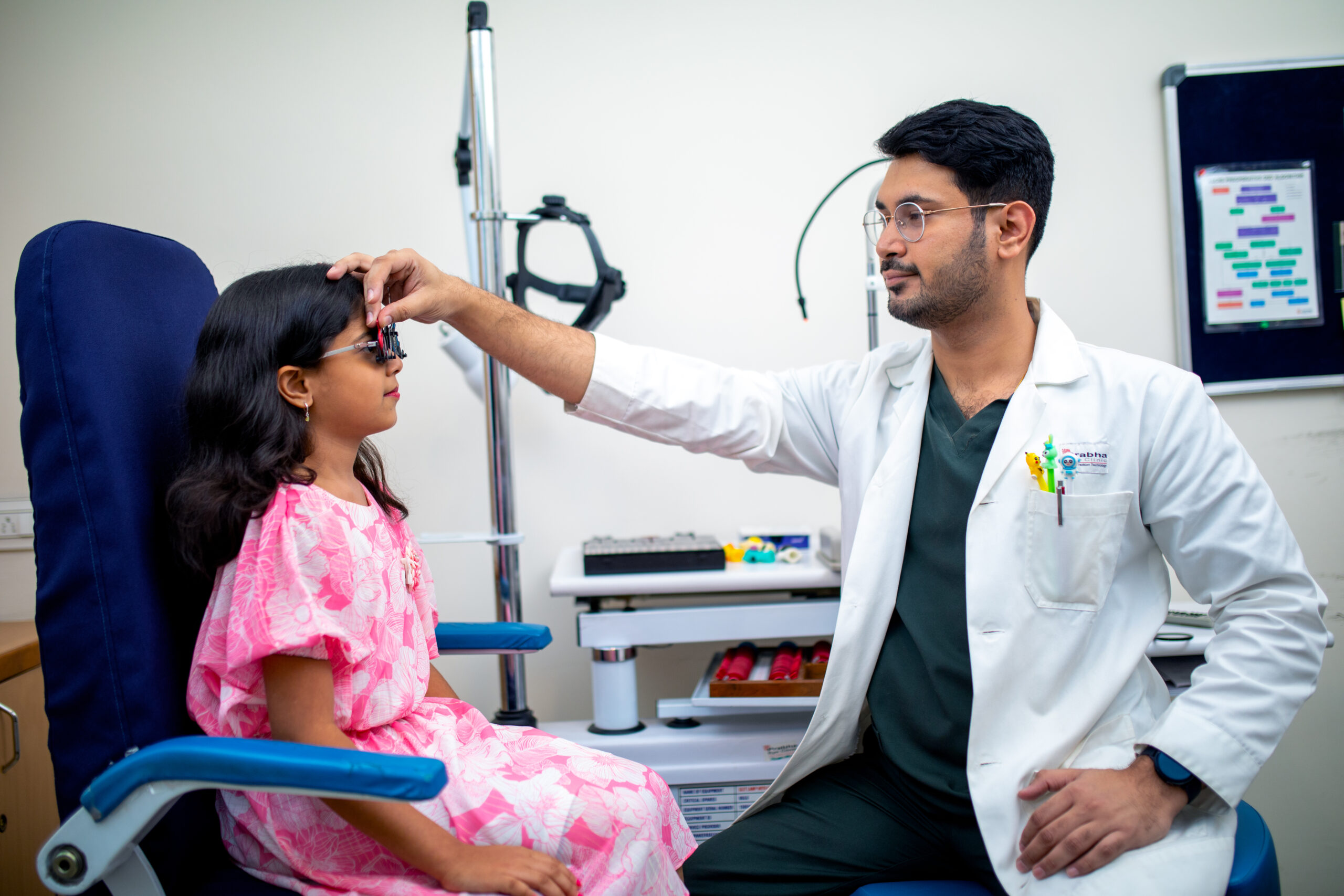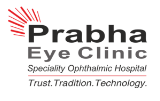Patient's Rights
It is the policy of Prabha Eye Clinic and Research Center to respect the individual rights of all patients coming to this facility for care. Patient rights include the right to make decisions regarding medical care, the right to accept or refuse treatment, and the right to formulate advance directives.
Patient responsibilities include those actions on the part of patients that are needed so that healthcare providers can provide appropriate care, make accurate and responsible care decisions, address patient’s needs, and maintain a sound and viable health care facility.

The patient shall be afforded impartial access to treatment that is available and medically indicated, regard-less of race, creed, sex, national origin, religion, sexual orientation or source of payment.
The patient has the right to consideration, respect, care, recognition and dignity.
The patient has the right, within the law, to provide personal privacy and informational privacy, as manifested by the right to:
- Refuse to talk with or see anyone not officially connected with the hospital, including visitors and persons officially connected with the hospital but who are not directly involved in his / her care.
- Wear appropriate personal clothing and religious or other symbolic items, as long as they do not jeopardize safety or interfere with diagnostic procedure or treatment.
- To be interviewed and examined in surroundings designed to assure reasonable audiovisual privacy. This includes the right to have a person of one’s own gender present during certain parts of a physical examination, treatment, or procedure performed by a health professional of the opposite sex; and the right not to remain disrobed any longer than is required for accomplishing the medical purpose for which the patient was asked to disrobe.
- Expect that any discussion or consultation involving his / her case will be conducted discreetly and that individuals, not involved in direct care, will not be present without permission of the patient.
- Have his / her medical record read only by individuals directly involved in treatment or monitoring of quality, and by other individuals only on written authorization by the patient or that of his / her legally authorized representative.
- Expect that all communications and other records pertaining to his / her care,including the source of payment of treatment, be treated as confidential.
- Expect that information given to concerned family members or other legally qualified significant person, be delivered in privacy and with due consideration of confidentiality.
- Request transfer to another available room if another patient or visitors in that room are unreasonably disturbing to the said patient.
- To have protective privacy and / or be assigned an alias name when considered necessary for personal safety.
The patient has the right to expect reasonable safety in the hospital practices and environment are concerned. To address the needs of patient, visitor and staff regarding safety and security, Prabha Eye Clinic provides security services for 24 hours a day and they are present in the emergency room round the clock.
The patient has the right to know the identity and professional status of individuals providing service to them, and to know which physician or other practitioner is primarily responsible for care. This includes the patient’s right to know of the existence of any professional relationship among individuals who are treating them, as well as the relationship to any healthcare or educational institutions involved in his care. Participation by patients in research programs, or in the gathering of data for research purposes, shall be voluntary with a signed informed consent.
- The patient has the right to obtain complete and current information concerning hisdiagnosis (to the degree known), treatment, pain management, and any known prognosis from the practitioner responsible for coordinating his care. This information should be communicated in terms that the patient can reasonably be expected to understand. When it is not medically advisable to give such information to the patient, the information shall be made available to a legally authorized individual.
- The patient has the right to formally access their medical records. The patient shall complete authorization to Disclose Protected Health Information which is then sent to Health Information Management for processing. The manager (Day / Night)/ incharge nurse is to be notified when such requests are made.
- The patient may access, request an amendment to, and / or receive an accounting of disclosures of their own protected health information as permitted under applicable law.
- The patient has the right of access to people outside the hospital by means of visitors, oral / written communication, regarding care related matters.
- When the patient does not speak or understand the predominant language of the community, or hearing is impaired, he / she shall have access to an interpreter if at all possible. This is particularly true where language barriers are a continuing problem.
- The patient has the right to informed participation in decisions involving health care. To the degree possible, this shall be based on a clear, concise explanation of his / her condition and of all proposed technical procedures, including the possibilities of any risk of mortality or serious side effects, problems related to recuperation, and probability of success. The patient shall not be subjected to any procedure without his / her voluntary, and informed consent, or that of his / her legally authorized representative. Where medically significant alternatives for care or treatment exist, the patient shall be so informed.
- The patient has the right to know who is responsible for authorizing and performing the procedures or treatment.
- The patient shall be informed if the clinician proposes to engage in or perform human experimentation or other research / educational projects affecting his / her care or treatment, and the patient shall sign an informed consent if participation is desired and maintains the right to refuse to participate or withdraw from any such activity at any time.
- The patient may refuse treatment to the extent permitted by law. When refusal of treatment by the patient or his / her legally authorized representative prevents the provision of appropriate care in accordance with ethical and professional standards, the relationship with the patient may be terminated upon reasonable notice.
- In life threatening emergencies where the patient is unconscious or is determined to be mentally incompetent and no consent can be obtained from an appropriate family member, appropriate treatment may be administered without consent.
The patient, at his / her own request and expense, has the right to consult with a specialist of his / her choice.
- A patient may not be transferred to another facility unless he / she has received a complete explanation of the need for the transfer and the alternatives to such a transfer. The patient has the right to be informed by the responsible practitioner or his / her delegate of any continuing healthcare requirements following discharge from the hospital.
- Regardless of the source of payment of his / her care, the patient has the right to request his / her total finalized bill for services rendered in the hospital. The patient shall be informed of eligibility for reimbursement by any third party coverage during the admission or pre admission financial investigation.
The patient shall be informed of the hospital rules and regulations applicable to his / her conduct as a patient.
- Providing accurate and complete information about medical complaints, past illnesses, hospitalizations, medications, pain, and other matters relating to their health;
- Follow the treatment plan recommended by those responsible for their care;
- See that their bills are paid as promptly as possible;
- Follow hospital rules and regulations; particularly with reference to the visitor’s policy.
- Be considerate of the rights of other patients and hospital personnel.
- Be responsible for their belongings and valuables.
The patient has the right to give his/ her feedback regarding shortcomings of the hospital services in the feedback form and is entitled to get information regarding the hospital mechanism for the initiation, review and resolution of such complaints.
PATIENT RESPONSIBILITIES
Patients have the responsibility to:
- Providing accurate and complete information about medical complaints, past illnesses, hospitalizations, medications, pain, and other matters relating to their health;
- Follow the treatment plan recommended by those responsible for their care;
- See that their bills are paid as promptly as possible;
- Follow hospital rules and regulations; particularly with reference to the visitor’s policy.
- Be considerate of the rights of other patients and hospital personnel.
- Be responsible for their belongings and valuables.
The staff is aware of the responsibilities in protecting patients and family rights. Violation of patient and family is recorded, reviewed by Medical Director. Corrective and Preventive measures taken by the hospital are also documented.







